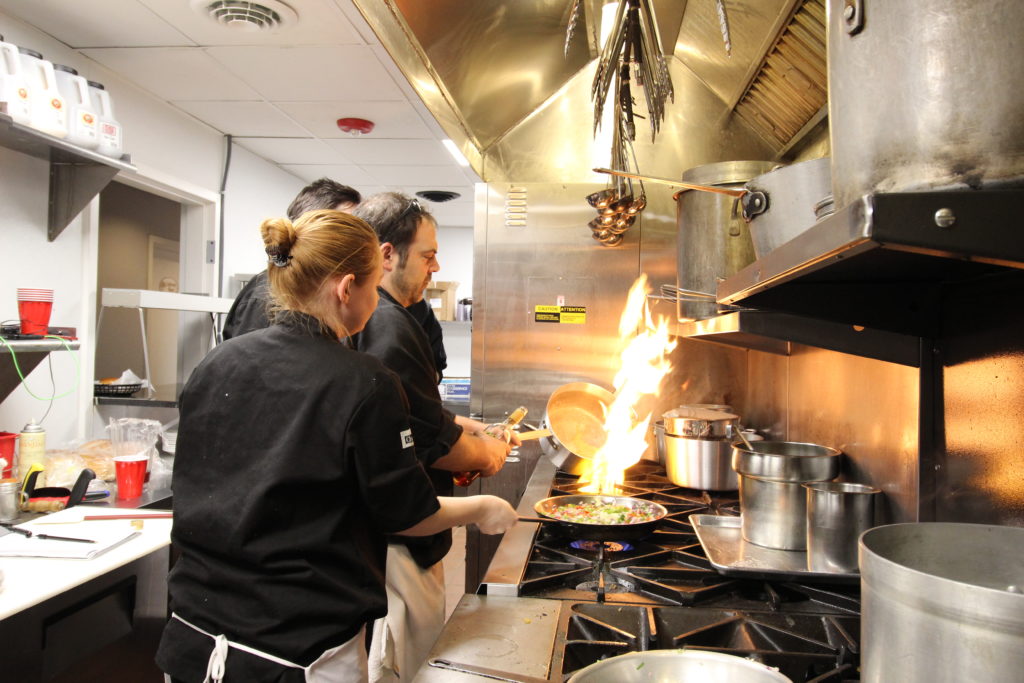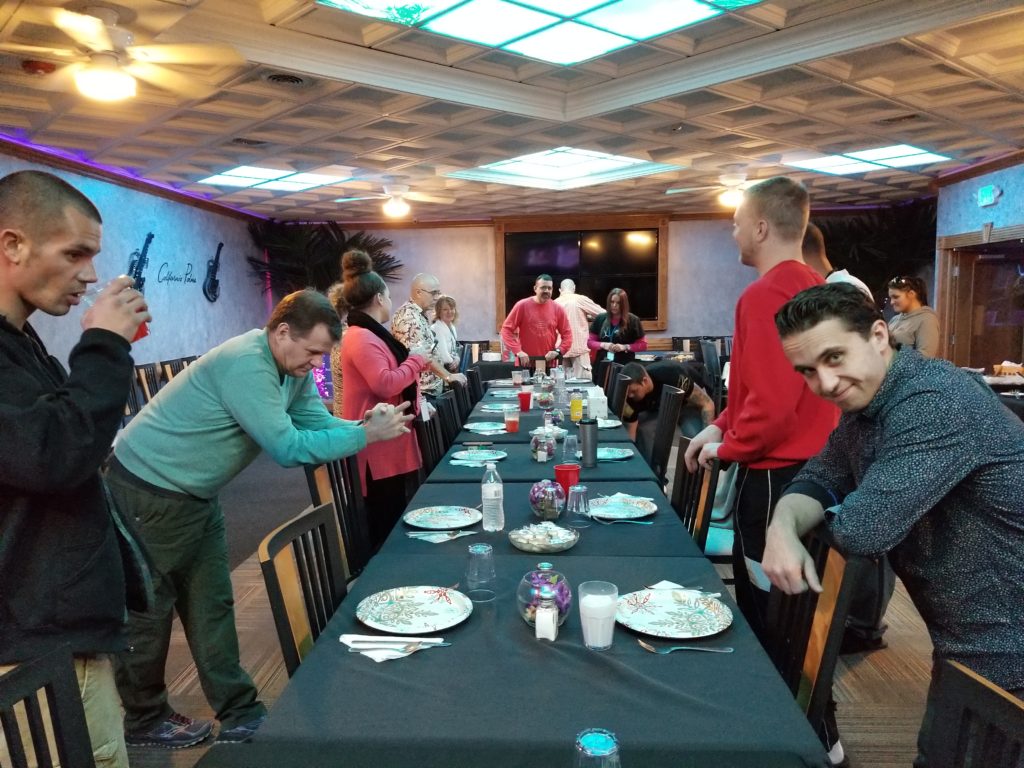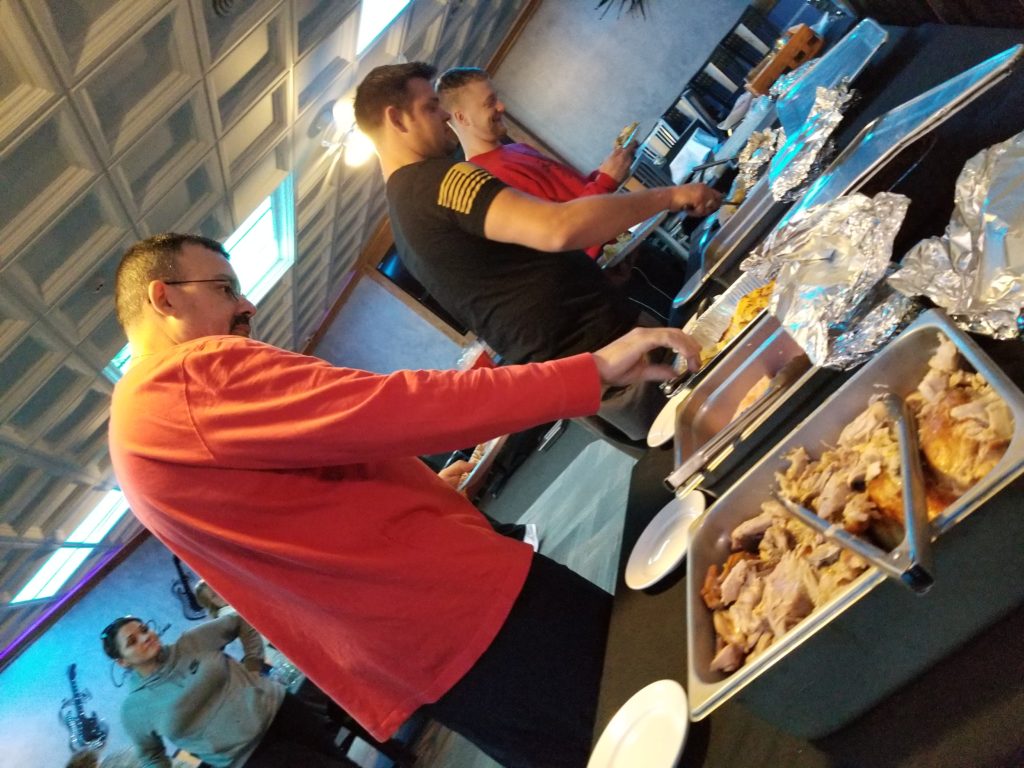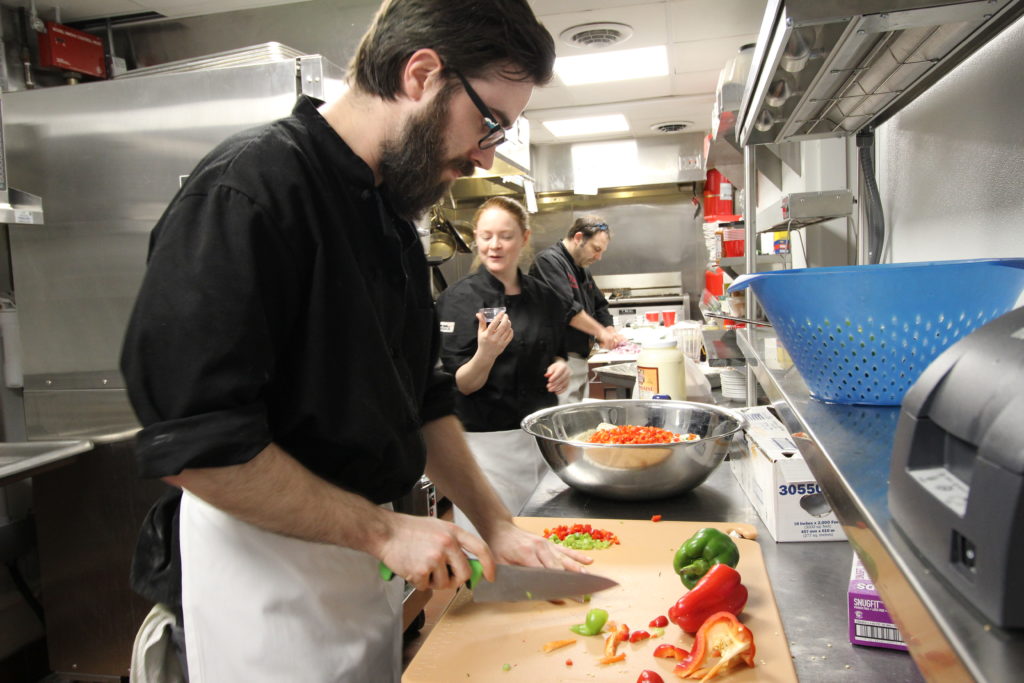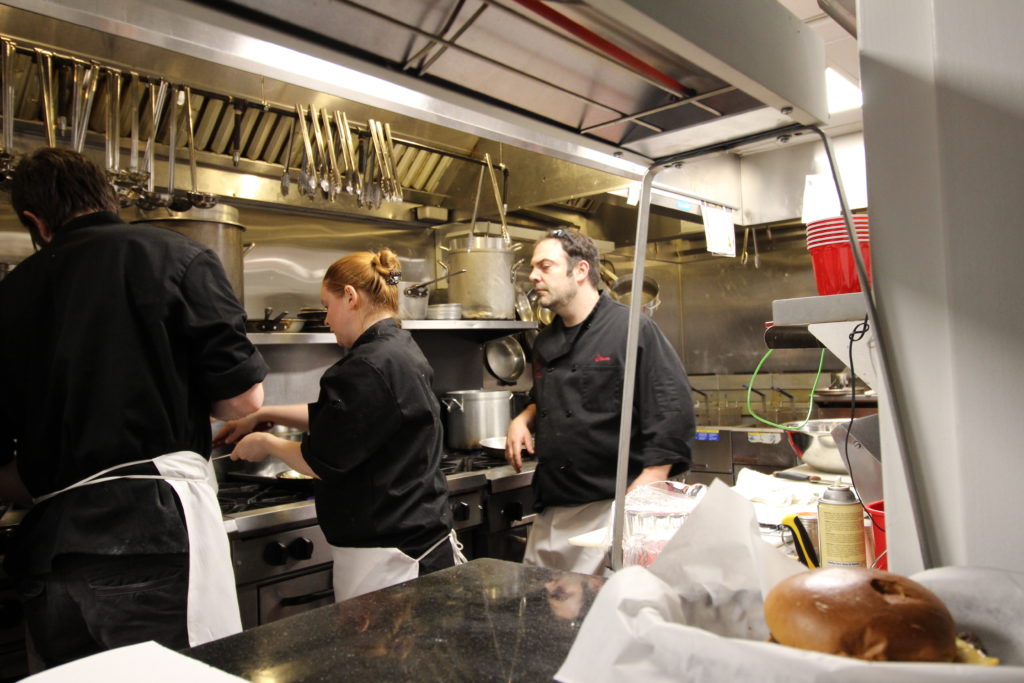COOKING THERAPY
The therapeutic cooking program at California Palms helps addicted patients build confidence, learn new skills, sharpen their talents, cultivate healthy nutrition and gain a heightened level of independence. One of the primary goals of addiction therapy is to begin reversing the damage left behind by drugs or alcohol. Patients often enter treatment with severe mental and physical health issues which need immediate attention. Therapeutic cooking not only contributes to the healing process, it also lays the foundation for healthier eating in the future.
The California Palms cooking program encourages patients to use cooking as a tool for independence and personal development. Patients are guided by a chef and recreational therapist, and will be instructed in planning and preparing nutritious meals. This course assists recovering addicts in developing greater cognitive, physical and social abilities.
Experience the Benefits of Culinary Therapy
Idle time can fast become the enemy of any recovering addict following rehab. Nonetheless, with many recovering addicts trying to change their lifestyles and associate with different friends, many find themselves isolated and burdened with extreme boredom early on. Cooking can help fill this time nicely. First, cooking any meal and then eating it (especially if it's for a large group of people) is time consuming and anything but boring. Second, armed with the nutrition and health information learned in rehab, recovering addicts are able to continue improving their overall health and feeling better about themselves.
Eating good food makes a person feel good. When that person is responsible for creating the dish as well, the rewarding feeling is immeasurable. Our cooking therapy sessions run up to two hours, depending on the dish being taught, and are held during the week. The hope of any effective drug or alcohol rehab program should be to give patients the tools they need to be successful once rehab has concluded. Therapeutic cooking is just one of several tools we give our patients to provide higher assurance that they won't relapse.

